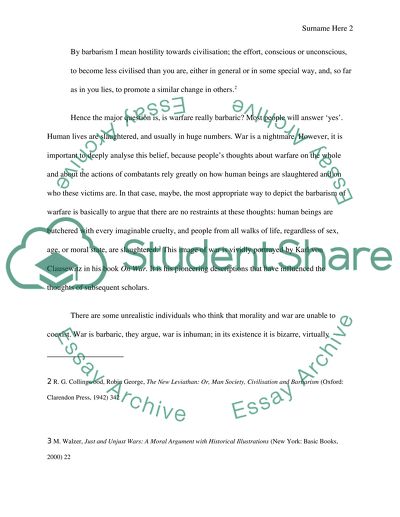Cite this document
(“Can Warfare be Anything Other than Barbaric Essay”, n.d.)
Retrieved from https://studentshare.org/military/1450021-can-warfare-be-anything-other-than-barbaric
Retrieved from https://studentshare.org/military/1450021-can-warfare-be-anything-other-than-barbaric
(Can Warfare Be Anything Other Than Barbaric Essay)
https://studentshare.org/military/1450021-can-warfare-be-anything-other-than-barbaric.
https://studentshare.org/military/1450021-can-warfare-be-anything-other-than-barbaric.
“Can Warfare Be Anything Other Than Barbaric Essay”, n.d. https://studentshare.org/military/1450021-can-warfare-be-anything-other-than-barbaric.


